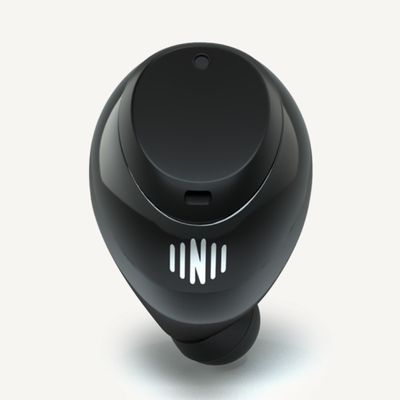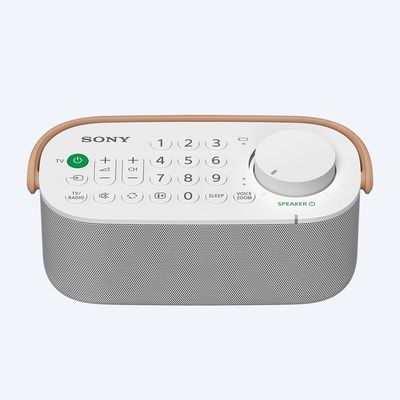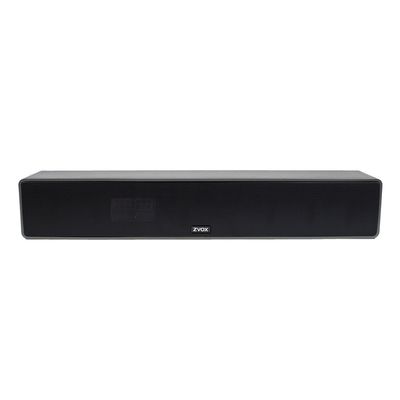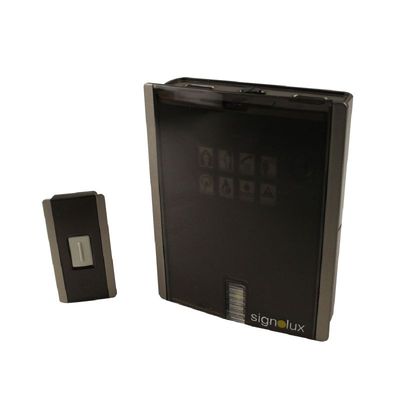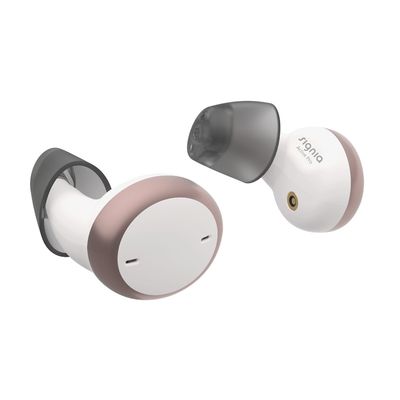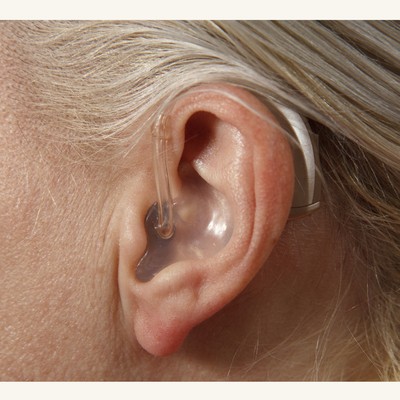
Want To Look After Your Hearing? Here’s What You Need To Know
Farah Kiani, audiologist at Hidden Hearing, says…
It’s A Gradual Process
Most people start to lose their hearing in their fifties, although this number is getting younger. According to the Royal Institute for Deaf People (RNID), more than 40% of those over 50, and 70% of over-70s have some form of hearing loss. Age-related hearing loss is called presbycusis and it might creep up on you as you age. It’s usually genetic and you’re at a higher risk if members of your family have previously experienced hearing loss. A large factor is also the additional impact of excess noise exposure – listening to loud noise for excessive periods of time can overwork our hair cells in the ear, which can cause these cells to die. Hair cells are like the microphone of the ear, and damage to them is important as they don’t regenerate, meaning once they are affected, hearing is permanently reduced or lost.
There Are Different Types Of Hearing Loss
The first, sensorineural hearing loss, is caused by damage to the hair cells inside the inner ear or damage to the auditory nerve, which occurs naturally with age. This type of hearing loss, which accounts for around 90% of all hearing loss, can be permanent but can be managed well with hearing aids. Age-related hearing loss is a type of sensorineural hearing loss. Conductive hearing loss, on the other hand, occurs when a blockage, such as ear wax or fluid from an ear infection, stops sound passing from your outer ear to your inner ear. And then there’s the spectrum to which this hearing loss can affect people. It can range from a mild loss, where you might find the higher-pitched voices of women and children, for example, harder to hear, to a total loss of hearing.
Meditation Could Be Worth A Try
By the time most people notice they’re experiencing hearing loss, it’s often too late to completely reverse the process, but there are things you can try in the meantime. People are increasingly turning to meditation to strengthen their hearing – meditation relaxes your body, which allows blood to flow to the important parts of the brain. It also allows you to focus on specific sounds more clearly. According to several studies, meditation can increase the grey matter in your brain responsible for attention, insinuating that meditation could also enhance your ability to perceive sounds at different auditory thresholds and boost the way your brain codes and stores this information.
It’s Possible To Get Tested At Home
Studies show that while we are quick to get our eyes tested, we wait on average ten years to ask the GP for a hearing test. Even then, a third of GPs don’t refer patients to an NHS audiologist, according to charity Action on Hearing Loss. If you or a family member is struggling to hear, take the free Hidden Hearing online hearing test – it takes less than five minutes and will provide an immediate insight into how well you or a family member can hear.
Visit HiddenHearing.co.uk
Katie Rowlands, service coordinator at Hearmore UK, says…
Lifestyle Plays A Part
It can be tricky to determine whether genetics or environmental factors are the underlying cause of age-related hearing loss, simply because so many people suffer from hearing loss in older age. Though genetic factors may increase your risk, if you work in or are exposed to frequent loud noises, take some forms of medication or succumb to an infection, your risk also increases. Moreover, a person with diabetes or heart disease, as well as someone taking high doses of aspirin and other pain killers, may be at a higher risk of age-related hearing loss. Though more research is needed, this suggests that a healthy, active lifestyle and balanced diet could significantly reduce the chances of developing hearing problems in later life. Severe illnesses – such as Covid-19 – can also cause permanent hearing loss.
Tinnitus Can Be A Symptom
A side-effect of tinnitus – a constant ringing or buzzing in the ears – is not a type of hearing loss itself but a symptom of sensorineural hearing loss, the most common form of age-related hearing loss. If you regularly hear hissing, whooshing, ringing or humming sounds in your ears for a prolonged period of time, you could be suffering from tinnitus. According to the RNID, around one in eight adults in the UK has tinnitus all the time or regularly. If your tinnitus is bothering you, if the ringing is only in one ear or if the sounds are intrusive, seek help from a medical expert.
Hearing Aids Have Come On In Recent Years
The hearing aid most suited to you will depend on several factors, such as the level of hearing loss. NHS hearing aids are digital, of good quality and free of charge, but there are other options available, too. There are digital, rechargeable and Bluetooth hearing aids, and three different types of each. These are receiver-in-canal (RIC) hearing aids, behind-the-ear (BTE) and in-the-ear (ITE) aids. RIC hearing aids use a thin wire that extends from the hearing aid, over the outer ear and into the ear canal. BTE aids sit behind the ear and are often more comfortable and easier to control. ITE hearing aids are designed to be placed inside the ear, so must be custom-made to best fit the individual. The advantage of digital hearing aids is that you can adjust them to different environments to customise your hearing experience. Similarly, Bluetooth allows you to connect with devices within 30 feet, and rechargeable aids save the inconvenience of running out of battery. Some hearing aids can even be altered via an app on your phone without even having to handle the device itself.
Visit Hearmoreuk.co.uk
Dr Elizabeth Rogers, associate clinical director at Bupa UK, says…
Symptoms Aren’t Always Obvious
If you’re having trouble with your hearing, your ear may feel muffled, blocked, or plugged. You may also feel as though there is water or pressure in your ear. Sometimes, if your hearing loss happens gradually, you may not be aware of it at first. A common first sign is difficulty in following conversations, particularly in noisy places. You may feel like others are mumbling and need to ask them to repeat themselves; you may also find you need to turn the TV louder to hear it. Other symptoms will depend on what’s causing your hearing loss – you may also experience dizziness. It’s always best to speak to your GP if your hearing loss is getting worse, especially if one ear seems worse than the other. They may refer you to an audiologist, who will ask you questions about your hearing and check your ears. They’ll then test your hearing to see if they can find a cause and decide if a hearing aid will help.
Protecting Your Ears Is Important
Noise is one of the most common preventable causes of hearing loss, and it’s never too late to protect yourself. Sound is measured in decibels (dB) and anything less than 85dB (roughly the noise of a kitchen blender) is fine. Over that, it depends on the period and exposure of intensity. Studies suggest you risk hearing damage after 15 minutes in a club playing music at 100dB. Take frequent breaks if you can’t remove yourself from a noisy environment altogether, wear ear protection (ear defenders or ear plugs) if you know you’re going to be somewhere noisy, and limit time and volume listening to music through headphones. Only use earbuds for a maximum of 60 minutes per day or use noise-cancelling headphones.
Staying Active Can Make The World Of Difference
Being healthy benefits the entire body – including your ears. Aim to get your heart racing every day through physical activity. Yoga is a great example of an activity that increases circulation and could protect your hearing. Hearing exercises can help you focus on where sounds are coming from and who or what is making the sounds and improve your hearing. For example, place two different sounds in one room (such as a speaker and radio). Have someone move around the room while reading sentences from a book or newspaper and close your eyes and try to repeat the sentence back.
Visit Bupa.co.uk
Are you struggling with your hearing? Here are six of the latest innovations that can help…
Swissvoice D38 Mobile Phone, £99.90
Made specially for those living with hearing loss, this clever phone amplifies calls to a clear 35 decibels and the ringer to 90 decibels. It also features spoken digits and spoken caller ID.
Available here
Nuheara IQ Buds, £211
Ideal for noisy parties and crowded situations, pop these buds in your ears when needed to tune out external noise and increase the sounds you do want to hear. You can fine-tune the sound with an accompanying app, too.
Available here
Sony Wireless Handy TV Speaker, ££139 (was £169)
This compact speaker works up to 30 metres from your TV, making it perfect for those who could use a helping hand when watching your favourite programme. It also doubles up as an additional TV remote control.
Available here
Zvox Soundbar, £179.99
If the sound from your TV sounds mumbly, boost its depth with a soundbar. The Zvox AV157 features 12 dialogue boost levels, as well as three further settings to enhance the surround-sound effect.
Available here
Signolux Doorbell, £71.99
This flashing alarm will show you if someone is at the front door. It has a discreet, stick-on microphone for the buzzer, which transmits a radio signal to a portable unit that flashes when the buzzer is activated.
Available here
Signia Active Hearables, £999
Suitable for those with mild to moderate hearing loss, these stylish and discreet buds will help you hear better in crowded situations, and there’s also a facemask setting, which provides a subtle boost to sound quality to remove muffling noises.
Available here
To access NHS hearing services, you’ll need a referral from your GP or other doctor involved in your care. The benefits of NHS care includes access to free hearing aids, batteries and repairs, while a private provider will be able to provide a wider choice of hearing aids. Free, impartial advice can also be sought from the RNID. Visit RNID.org.uk and NHS.uk for more information.
DISCLAIMER: Features published by SheerLuxe are not intended to treat, diagnose, cure or prevent any disease. Always seek the advice of your GP or another qualified healthcare provider for any questions you have regarding a medical condition, and before undertaking any diet, exercise or other health-related programme.
DISCLAIMER: We endeavour to always credit the correct original source of every image we use. If you think a credit may be incorrect, please contact us at info@sheerluxe.com.

